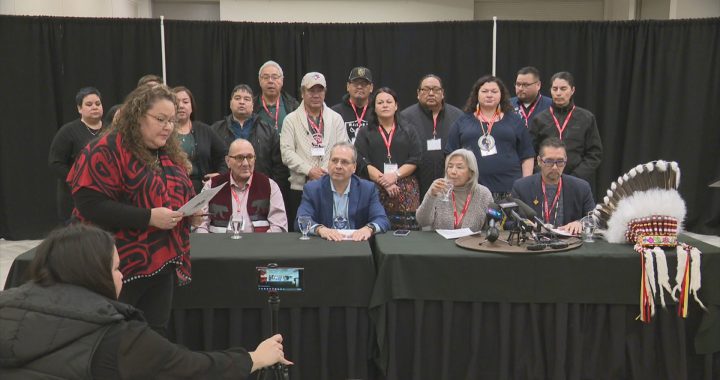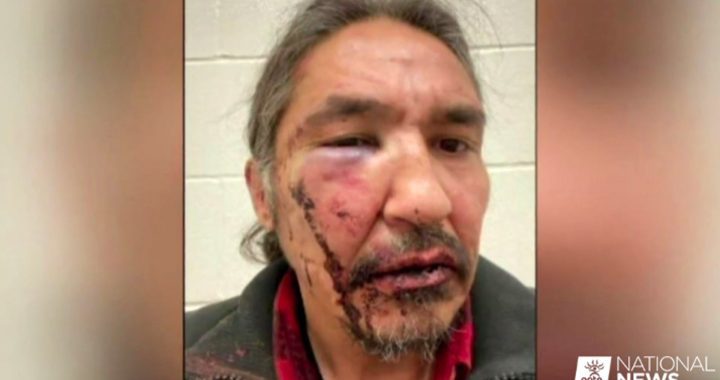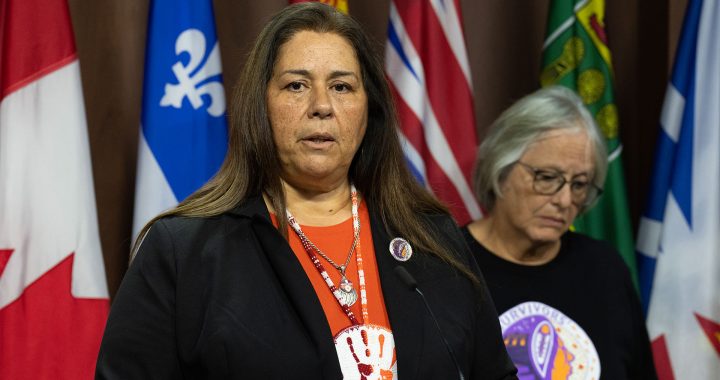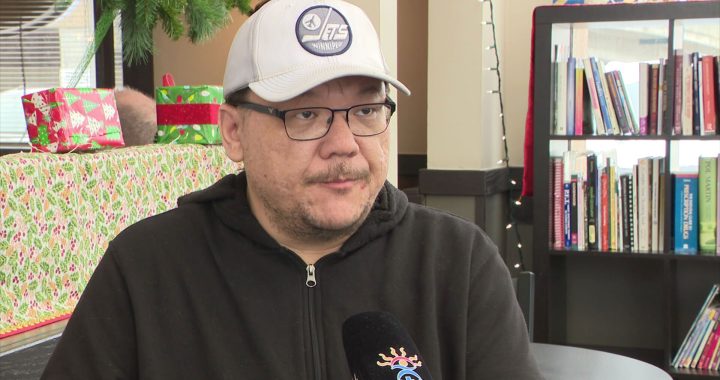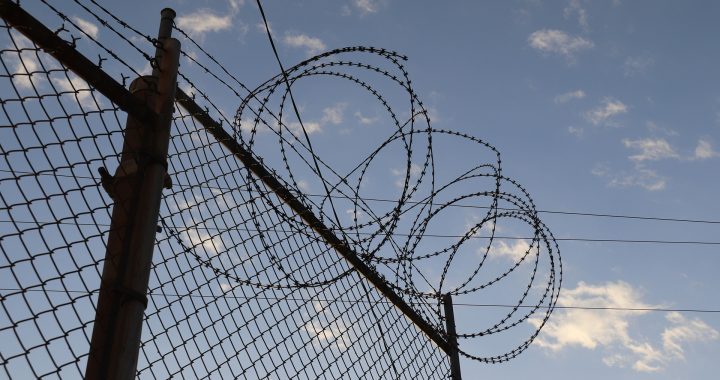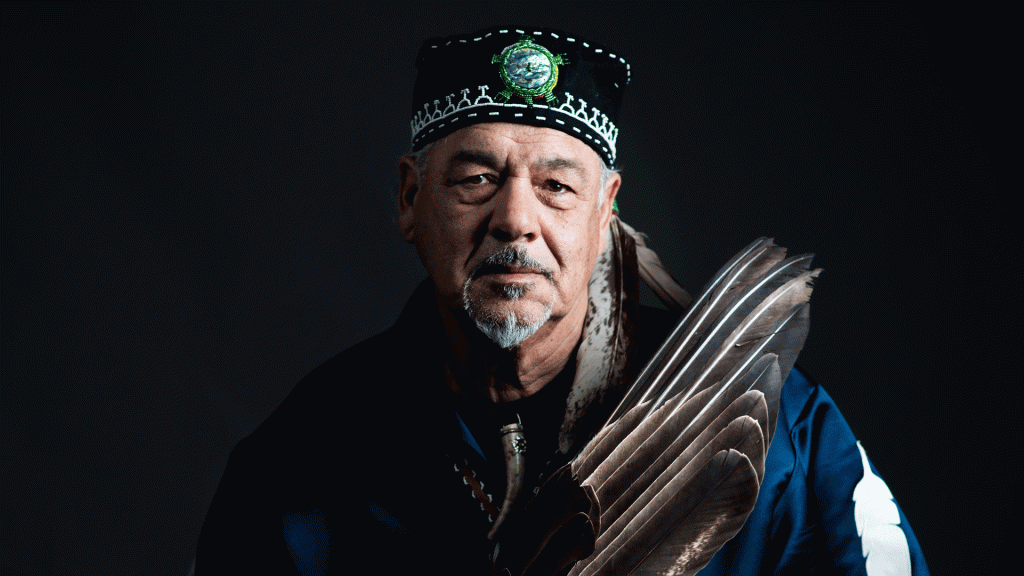
Algonquin Elder Albert Dumont spent three years administering elder-assisted parole hearings. Photo courtesy: Albert Dumont
An elder who’s worked extensively in the country’s prison system crticizes the federal parole board for not doing enough to help Indigenous offenders and calls its recent actions racist.
Because of COVID-19 the Parole Board of Canada (PBC) no longer offers elder-assisted hearings for Indigenous inmates seeking early release from penitentiaries, forcing people to choose between postponing the hearing or proceeding without access to cultural and spiritual support.
Elder Albert Dumont, a prominent storyteller and teacher among many other things, says he’s administered more of these hearings that he can count.
“There’s no reason why, absolutely no reason, why they’re not doing it. To me, it’s against the (inmates’) human rights,” he said from his home in Kitigan Zibi, an Algonquin community on unceded land less than two hours north of Ottawa.
“I think it’s racist and I think it’s just a reflection of the superiority complex a lot of the parole board members have when it comes to dealing with First Nations people.”
An elder, had one been there, might’ve smudged, prayed, sang or offered advice at Gabriel Poundmaker’s March 4 parole hearing.
“It bothered me a lot, especially not having an elder there to support me. There’s more support. It gives you also a better chance of being released. They’re able to provide information about yourself, that you’ve worked on yourself,” he said.
Poundmaker, a 29-year-old originally from Poundmaker Cree Nation, Sask., spoke with APTN News after being released on full parole from Archambault Institution, a medium security penitentiary in Quebec.
He already applied for an apprenticeship now that he’s out – but COVID-19 put that on hold.
The pandemic put many things on hold, which Poundmaker says made life more stressful than it already was for those on the inside.
“The one-on-ones with the elders were cancelled, a lot of the programs. It bothered a lot of us in the institution,” he said. “It’s very beneficial for a lot of us, and it’s support. Some inmates are not able to see a psychologist, to talk to somebody.”
“It was very stressful the way the living environment became,” he adds.
The PBC told APTN that 127 elder-assisted hearings had been cancelled as of May 17. Nine inmates decided to postpone the hearing until an undetermined future date when an elder can participate remotely. The other 118 proceeded without one.
The man in charge of Canada’s prison system defended the decision during a COVID-19 committee meeting after the NDP accused Ottawa of discriminating against Indigenous inmates by cancelling the program.
“We’re working very hard to ensure that elder participation can occur virtually until such time as we’re able to do it in person. We do recognize its importance,” said Minister of Public Safety Bill Blair.
Dumont doesn’t buy it. He worked for the parole board as an elder for three years. He tells stories of standing up for inmates and confronting what he believes was prejudice and discrimination.
“If I felt that they were off track or not understanding something about Indigenous peoples and our worldview and these things, I would bring it up,” Dumont said.
He draws on his own experience to suggest a simple plan to get the elder-assisted hearings going again.
“They can make it happen. It’s a simple matter of sending the file to an elder, just like they used to do, three days before the hearing. Supply a PBC phone and then the inmate could call the elder from the prison at an appointed time and talk to the elder for 15 minutes. Then you could do the parole board hearing (by phone). What’s wrong with that plan?”
Read more:
Ottawa facing mounting pressure to protect inmates in minister’s absence
The PBC told APTN last week it’s “exploring options” for remote elder-assisted hearing but noted it may leave some dissatisfied.
“PBC is sensitive to the fact that remote hearings may not meet the expectations of some Indigenous offenders or elders, and this will be considered in the development of any future options,” wrote spokesperson Iulia Pescarus Popa.
Vicki Chartrand, associate professor and department chair in sociology at Bishop’s University, says the overincarceration of Indigenous people is part of an ongoing process of colonization that packages old stereotypes in new forms.
“Rather than savage it’s called dangerous or high-risk or dangerous offender. You start to use very different language but the actual impacts are the same and the effects are the same.”
Chartrand points to Sections 81 and 84 of the Corrections and Conditional Release Act, which discuss ways inmates can serve their sentence in the community and reduce overrepresentation.
“If people are inside and they don’t pose a significant violent threat to society, why can’t they access those kinds of cultural necessities and rights outside of the prison?” she asks.
“We’ve seen with the whole COVID-19 situation and the lawsuits that Corrections isn’t doing anything to provide early release for anyone, from what I understand.”
On May 5, Blair told a press conference that hundreds of inmates had been released early into the community because of the novel coronavirus. APTN asked and did not receive the exact number of inmates released due to COVID-19.
It may look like CSC and PBC discriminate against Indigenous inmates by cutting elder-assisted hearings and one-on-ones, but a lawyer representing an Ojibwe woman in a class-action against the government explains this isn’t accurate.
CSC cut programs for all inmates, not just Indigenous prisoners. Visitors of all sorts, not just elders, are no longer allowed in penitentiaries.
It’s a glimpse into the life of inmates locked up during a pandemic lockdown.
“There’s no programs period,” said lawyer Sylvie Bordelais, whose organization filed suit against Canada in Quebec Superior Court last month.
A different lawsuit filed in Federal Court also claims CSC’s “implementation of lockdowns and the confinement of prisoners in conditions amounting to segregation for prolonged and indefinite periods” breaches prisoners’ human rights.
The claims haven’t been tested and a class-action requires certification by a judge before it can proceed.
APTN has requested numerous interviews with Blair throughout the pandemic. They weren’t granted.
In a previous statement, CSC said it’s taking “exceptional measures” to prevent the spread of COVID-19, including mask use and suspending visits to inmates, all temporary absences (unless medically necessary), work releases for offenders and all inter-regional and international transfers of inmates.




